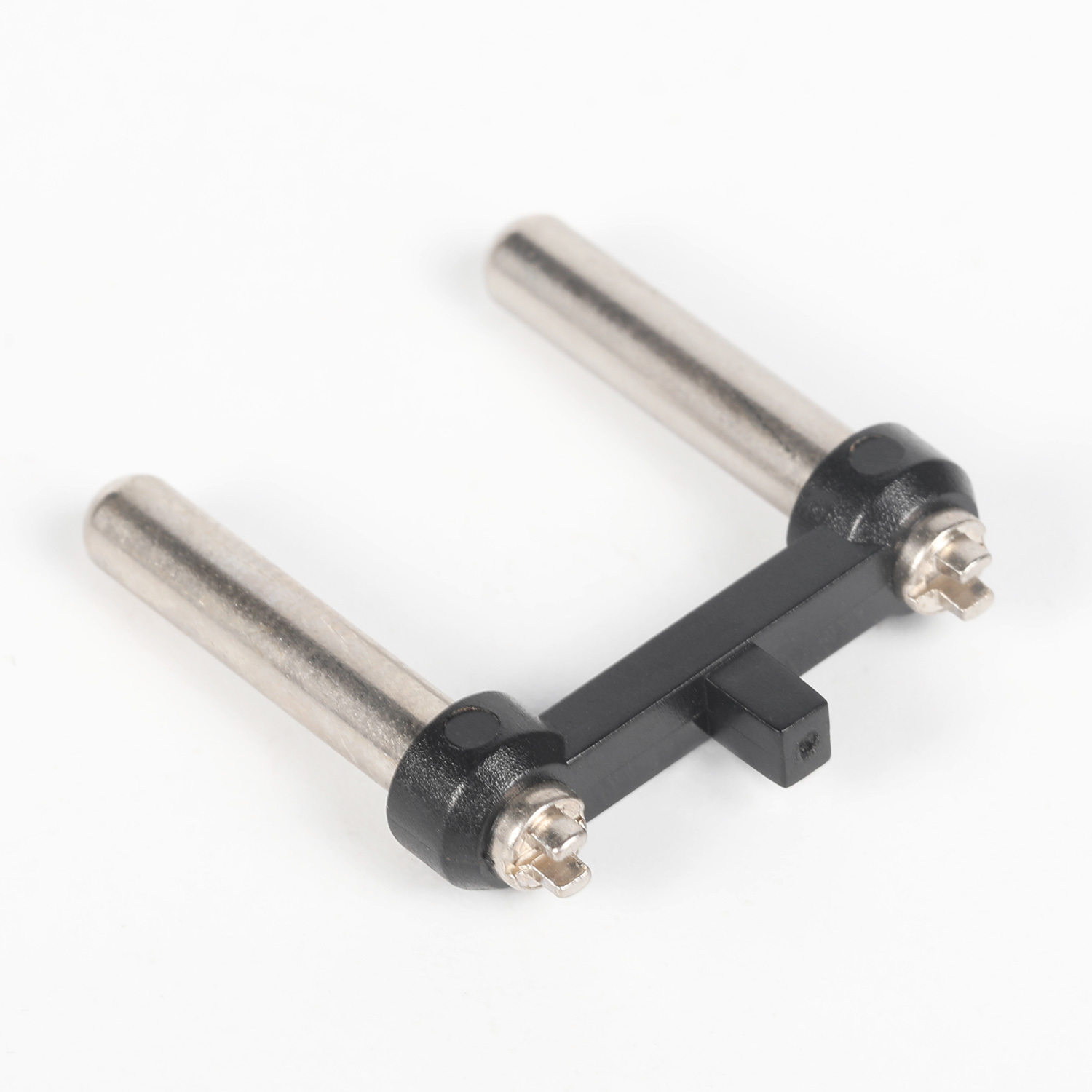 Esperanto
Esperanto
 Shqiptare
Shqiptare
 Euskara
Euskara
 Zulu
Zulu
 Latinus
Latinus
 Cymraeg
Cymraeg
 தமிழ்
தமிழ்
 Slovak
Slovak
 Slovak
Slovak
 Afrikaans
Afrikaans
The Future of Household Appliances: Embracing Smart Technology Trends
Release time:
2025-05-24
Source:
The Future of Household Appliances: Embracing Smart Technology Trends
As technology continues to evolve, the household appliance industry is undergoing a profound transformation. The integration of **smart technology** is reshaping how we interact with our home devices, creating a seamless blend of convenience, efficiency, and connectivity. From thermostats that learn your habits to refrigerators that can create grocery lists, the future of household appliances is bright, innovative, and exciting. In this article, we will explore the latest **smart technology trends** in household appliances and how they are poised to redefine our living spaces.
Table of Contents
- 1. Introduction to Smart Technology in Household Appliances
- 2. Benefits of Smart Appliances for Modern Homes
- 3. Cutting-Edge Technology Trends in Household Appliances
- 4. Energy Efficiency and Sustainability in Smart Appliances
- 5. Key Innovations in Kitchen Appliances
- 6. Smart Living Room Devices: Enhancing Comfort and Entertainment
- 7. The Future of Laundry Solutions: Smart Washers and Dryers
- 8. Home Security and Smart Systems: Protecting Your Space
- 9. Frequently Asked Questions (FAQs)
- 10. Conclusion: The Smart Home Revolution
1. Introduction to Smart Technology in Household Appliances
The term **smart technology** refers to devices and systems that can connect to the internet, enabling them to communicate with one another and with users. This connectivity allows for increased automation, remote control, and enhanced functionality. In the context of household appliances, smart technology is revolutionizing the way we manage our daily tasks, making our homes more efficient and convenient.
As consumers increasingly seek products that offer more than just standard functionalities, manufacturers are rising to the challenge. They are embedding advanced technologies such as artificial intelligence (AI), the Internet of Things (IoT), and machine learning into their appliances, creating a new generation of smart devices that learn preferences, adapt to user behavior, and provide actionable insights.
2. Benefits of Smart Appliances for Modern Homes
Smart appliances offer a myriad of advantages that cater to the needs of modern consumers. Here are some key benefits:
Convenience and Control
With smart appliances, users can control devices remotely through smartphones or voice commands. Imagine starting your dishwasher or adjusting your thermostat from your office or while on vacation. This level of control enhances convenience and offers peace of mind.
Improved Energy Efficiency
Many smart appliances are designed with energy-saving features that promote more sustainable living. These appliances can monitor energy usage patterns and suggest ways to reduce consumption, leading to lower utility bills and a smaller carbon footprint.
Enhanced Safety Features
Smart home technology often includes advanced safety features such as leak detectors, smoke alarms, and security systems that send alerts to your smartphone. This added layer of safety ensures that homeowners can act quickly in case of emergencies.
Remote Monitoring and Maintenance
Some smart appliances can diagnose issues and even schedule maintenance automatically. For instance, your washing machine may notify you when it requires a repair, helping you prevent major breakdowns and costly repairs.
3. Cutting-Edge Technology Trends in Household Appliances
The landscape of household appliances is continuously evolving, with several cutting-edge trends shaping the industry:
1. Voice-Activated Technology
Voice-activated devices are becoming mainstream. Appliances that respond to voice commands allow for hands-free operation, making cooking and cleaning more enjoyable.
2. AI and Personalization
Artificial intelligence is at the forefront of appliance innovation. Smart devices that learn user preferences can optimize settings, recommend recipes, and even adjust cooking times based on past behaviors.
3. IoT Connectivity
The rise of the Internet of Things enables appliances to communicate with each other. For instance, your oven can tell your refrigerator to adjust its temperature when preparing to cook a large meal.
4. Integration with Smart Home Systems
Smart appliances are increasingly designed to integrate seamlessly with broader smart home ecosystems. This integration allows for centralized control through smartphone apps or smart speakers, creating a cohesive smart home experience.
4. Energy Efficiency and Sustainability in Smart Appliances
As the focus on sustainability grows, smart appliances play a crucial role in promoting energy efficiency:
Eco-Friendly Features
Many smart appliances come equipped with eco-friendly features, such as energy-efficient modes and sensors that optimize power usage based on real-time data. These features not only help reduce energy consumption but also encourage consumers to adopt more sustainable practices.
Water Conservation
Smart washing machines and dishwashers are designed to minimize water usage without sacrificing performance. Some models automatically adjust water levels based on load size, ensuring that resources are used judiciously.
Recycling and Waste Reduction
Smart refrigerators can help manage food inventory, reducing food waste. By tracking expiration dates and suggesting recipes based on available ingredients, these appliances encourage consumers to utilize what they have.
5. Key Innovations in Kitchen Appliances
The kitchen is arguably the heart of a smart home, where appliances are becoming increasingly innovative:
Smart Refrigerators
Modern smart refrigerators come equipped with touch screens, internal cameras, and even recipe suggestions. Users can see what’s inside their fridge from their smartphones, making grocery shopping more efficient.
Smart Ovens
Smart ovens allow for remote cooking and precision control. With features like preheating from your phone and recipe guidance, cooking a perfect meal has never been easier.
Connected Coffee Makers
Imagine waking up to the smell of freshly brewed coffee, prepared by a coffee maker that you programmed the night before through your smartphone. Connected coffee makers offer convenience and customizable options for coffee lovers.
6. Smart Living Room Devices: Enhancing Comfort and Entertainment
The living room is where many families gather, and smart devices are enhancing comfort and entertainment:
Smart TVs and Streaming Devices
Smart TVs are equipped with internet connectivity, allowing users to stream content from various platforms. Integration with voice assistants enhances user experience and simplifies content navigation.
Smart Sound Systems
Wireless speakers and sound systems provide high-quality audio and can be controlled through voice commands or smartphone apps. This offers a truly immersive entertainment experience.
Smart Lighting Solutions
Smart lighting allows users to control the ambiance of their living spaces through their smartphones. Energy-efficient LED bulbs can be dimmed or brightened remotely, or programmed to adjust based on the time of day.
7. The Future of Laundry Solutions: Smart Washers and Dryers
Laundry appliances are also benefiting from smart technology:
Smart Washers
Smart washers can be programmed remotely and can even notify users when a load is done. Sensors can detect fabric types and adjust wash cycles accordingly, ensuring optimal care for your clothes.
Smart Dryers
Similar to washers, smart dryers offer scheduling options and can adjust drying times based on the load. This not only saves energy but also prevents over-drying, prolonging the life of your garments.
8. Home Security and Smart Systems: Protecting Your Space
Smart technology isn't just about convenience; it's also about safety:
Smart Security Cameras
Smart security cameras allow homeowners to monitor their property remotely. Features such as motion detection alerts and two-way audio provide peace of mind, whether at home or away.
Smart Door Locks
Smart door locks offer keyless entry and remote access, allowing homeowners to grant access to guests or service providers without being physically present. This enhances security and convenience.
Integrated Security Systems
Many smart home systems integrate security features, allowing users to monitor alarms, cameras, and locks through a single interface. This centralized control simplifies home security management.
9. Frequently Asked Questions (FAQs)
1. What are smart appliances?
Smart appliances are devices that connect to the internet and allow remote control and automation of household tasks, enhancing convenience and efficiency.
2. How do smart appliances save energy?
Smart appliances monitor usage and optimize power consumption based on user behavior and preferences. They often include energy-saving modes that reduce energy consumption.
3. Are smart appliances safe to use?
Yes, smart appliances are designed with safety features, but users should ensure their devices are secure and regularly updated to protect against vulnerabilities.
4. Can smart appliances work together?
Many smart appliances are designed to integrate with one another, allowing for coordinated actions and central control through smart home systems.
5. What are some examples of smart appliances?
Examples include smart refrigerators, ovens, washers, dryers, and security systems that offer enhanced features and capabilities compared to traditional appliances.
10. Conclusion: The Smart Home Revolution
The future of household appliances is undeniably intertwined with smart technology. As we embrace these innovations, our homes will become more efficient, convenient, and secure. The ongoing advancements in smart appliances promise to enhance our daily lives, making mundane tasks easier and allowing us to focus on what truly matters. As consumers, it's essential to stay informed about these trends and consider how smart technology can fit into our lifestyles. With the rapid pace of change, the smart home revolution is not just a trend; it's the new standard for modern living.
household appliances
Related News
2025-12-09 12:10
A Comprehensive Guide to Household Appliances Maintenance: Keep Your Home Running Smoothly
A Comprehensive Guide to Household Appliances Maintenance Household appliances are the backbone of modern living, providing convenience and efficiency in our daily routines. However, just like any other mechanical devices, they require regular maintenance to function optimally. In this guide, we will explore various household appliances, their maintenance needs, and practical tips to extend their
2025-12-04 12:00
Understanding Electrical Adapters: Your Guide to Efficient Power Solutions
Electrical adapters are crucial components in the realm of electrical and electronic devices, serving as intermediaries that facilitate the connection between different power sources and devices. They enable users to leverage the electrical supply in a manner that is both safe and efficient. Understanding the various types of electrical adapters and their functionalities is essential for anyone in
Let’s Talk
We can help you figure out your needs.




